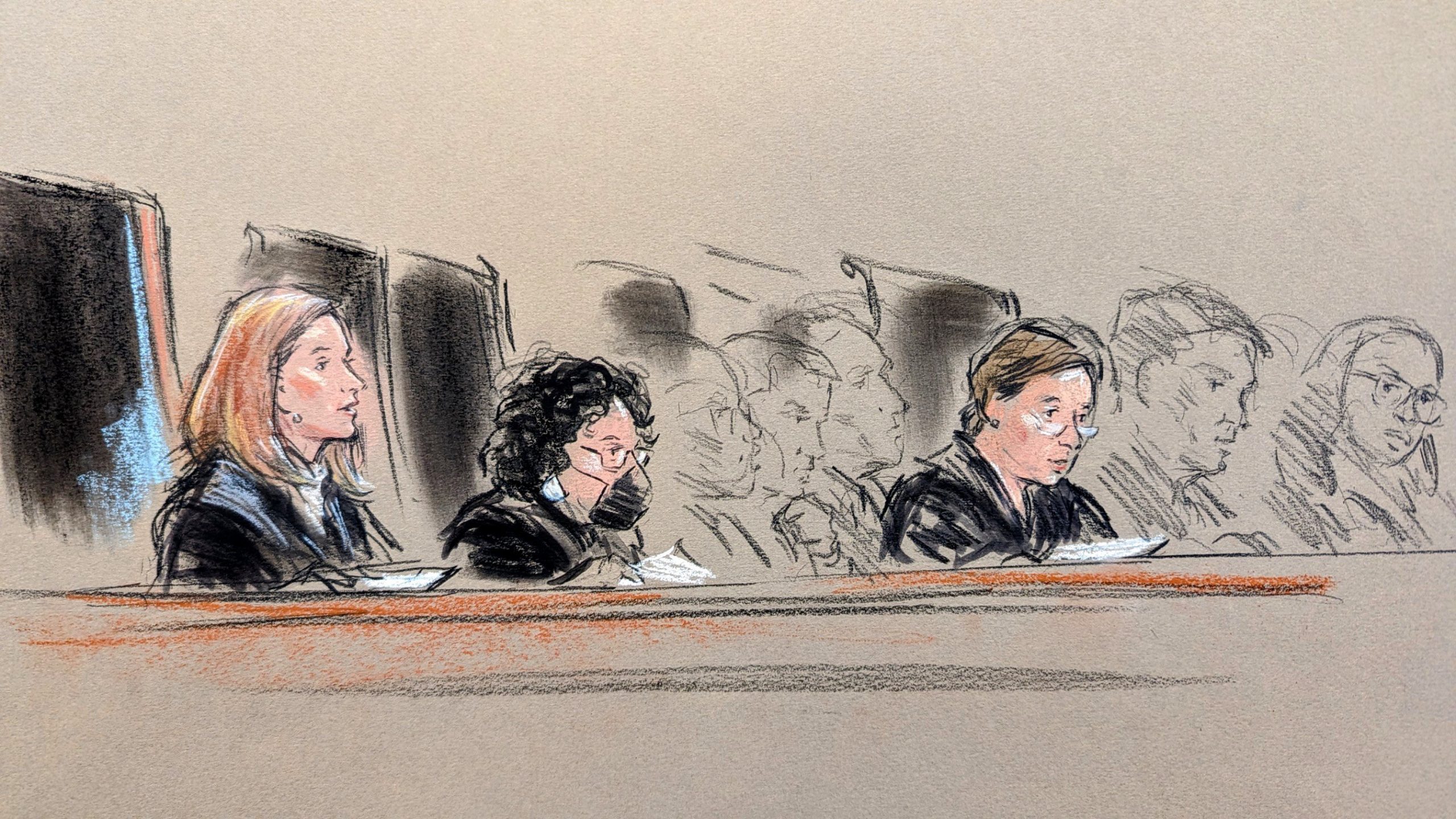When do legal observers at protests get First Amendment protection?
Petitions of the week
on Dec 26, 2023
at 7:28 pm
The Petitions of the Week column highlights a selection of cert petitions recently filed in the Supreme Court. A list of all petitions we’re watching is available here.
Pure speech, words that are spoken or written, is broadly protected by the First Amendment. If a government official punishes someone because of their pure speech, that person may have a strong case to sue for retaliation in violation of their constitutional rights. This week, we highlight petitions that ask the court to consider, among other things, whether words displayed on hats worn at a protest by legal observers – attorneys who document the treatment of demonstrators’ civil rights – can entitle them to sue police who suppressed the rally.
On August 19, 2015, police shot and killed 18-year-old Mansur Ball-Bey while searching a house in St. Louis, Missouri. Shortly after, a large protest broke out on the streets of the Fountain Park neighborhood where the shooting took place. In the crowd were two attorneys, Sarah Molina and Christina Vogel, who attended the demonstration wearing green hats identifying them as legal observers for the National Lawyers Guild, a nationwide progressive legal organization.
Police ordered the protesters to disperse. When many refused, the officers began firing tear gas into the crowd. Molina and Vogel left and walked down a side street to Molina’s home. Shortly after, a Ballistic Engineered Armored Response – or BEAR – Truck turned down the same street. Police lobbed tear-gas canisters from the BEAR towards the two attorneys, who were standing in Molina’s front yard. They sought shelter beside a neighbor’s home.
Molina and Vogel went to federal court, arguing that both the city and the police officers who operated and directed the BEAR had retaliated against them in violation of their constitutional rights to free speech and assembly under the First Amendment. A federal district court in Missouri ruled that Molina and Vogel’s claims could go to a jury, rejecting the officers’ argument that they were entitled to qualified immunity. But before the case could go to trial, the officers appealed.
In a divided ruling, the U.S. Court of Appeals for the 8th Circuit reversed the district court’s ruling. The court of appeals explained that wearing the hats would only be speech, and therefore protected by the First Amendment, if Molina and Vogel had intended to convey a particular viewpoint and there was a good chance that anyone who saw them would understand the message. Although wearing hats emblazoned with the phrase “National Lawyers Guild Legal Observer” was a “close call,” the 8th Circuit reasoned, the two lawyers are not entitled to First Amendment protection because “not everyone would have understood the pro-protest message they were trying to convey.” Concluding that police could not have violated the pair’s clearly established constitutional rights, the court held that the officers were entitled to qualified immunity and dismissed the lawsuit.
In Molina v. Book, the two attorneys ask the the justices to grant review and reverse the 8th Circuit’s ruling. They argue that the courts of appeals are divided over whether words written on clothing are protected by the First Amendment only if they express a specific message. Under the 8th Circuit’s theory, Molina and Vogel write, “the government has license to stifle or retaliate against speech simply because a written message appears printed on clothing and its substantive meaning is arguably unclear.”
A list of this week’s featured petitions is below:
Molina v. Book
23-227
Issues: (1) Whether words printed on clothing are pure speech, and thus presumptively entitled to First Amendment protection, or whether they are protected only if they convey a “particularized message”; (2) whether, in light of important new historical evidence, this court should reconsider the doctrine of qualified immunity; and (3) whether the court of appeals erred in holding that a First Amendment right to unobtrusively observe and record police performing their duties in public is not clearly established.
Broadnax v. Texas
23-248
Issue: Whether the Texas Court of Criminal Appeals’ decision that James Broadnax failed to establish a prima facie equal protection claim conflicts with this court’s decision in Batson v. Kentucky.
Steelman v. Ernest Bock LLC
23-308
Issue: Whether a stay of federal proceedings under Colorado River Water Conservation District v. United States is permissible only when a pending state court case will necessarily resolve the federal proceedings however it is decided, or whether a stay is permissible when one of the potential outcomes in state court can completely resolve the case, even if a second potential outcome would leave further issues for federal litigation.
Ratzloff v. United States
23-310
Issue: Whether the administrative law principles articulated in Kisor v. Wilkie limit the deference owed to the United States Sentencing Commission’s commentary on the sentencing guidelines.
Crandel v. Hall
23-317
Issue: Whether the objective-reasonableness test of Kingsley v. Hendrickson applies to pretrial detainees’ claims about their treatment while in custody, including failure to protect from the risk of suicide.






